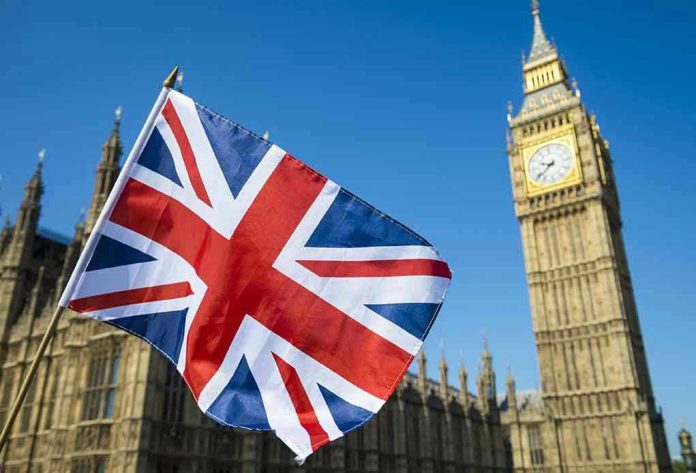
Beneath the veneer of British hospitality, a new sign is being hung: “Britain is full.” What does it mean for the soul of a nation when sanctuary becomes a slogan for exclusion?
Story Snapshot
- Shabana Mahmood signals a turning point in Britain’s immigration policy.
- Historic openness is replaced by a rhetoric of exclusion.
- Controversial echoes of past discrimination resurface in public discourse.
- Mahmood’s stance ignites debate on national identity and humanitarian obligations.
Britain’s Shifting Welcome: From Sanctuary to Slogan
Shabana Mahmood, a prominent political figure, recently placed herself at the center of a national debate by declaring, “Britain is full.” Her stance marks a distinct departure from the country’s long-standing tradition of offering refuge to those in need. The message, reminiscent of the infamous signs, “No blacks, no dogs, no Irish,” is a powerful signal: Britain’s welcome mat is being pulled back, and the door is set to close on those seeking sanctuary. Mahmood’s rhetoric is not simply about policy—it’s about a national identity in flux.
The implications of such a pronouncement go far beyond administrative borders. British society, for centuries, prided itself on its willingness to absorb and embrace people fleeing persecution. Mahmood’s new approach, “kick them out as soon as possible,” has a chilling resonance for anyone with a memory of exclusionary policies and the historic injustices they fostered. For many, Mahmood’s declaration feels like a step backward, a return to a time when ethnic and national origin determined one’s right to belong.
Echoes of History: Revisiting Exclusion and Belonging
Britain’s journey from post-war sanctuary for refugees to a nation grappling with migration anxiety is not linear. The phrase “No blacks, no dogs, no Irish” once adorned windows and doors, a blunt signal that certain people were not welcome. Today, Mahmood’s determined frame of mind suggests a modern iteration of this sentiment, cloaked in the language of capacity and control. The historical parallels are undeniable, and the tension between humanitarian responsibility and national sovereignty has reached a new crescendo.
The politics of exclusion have rarely been so publicly embraced by mainstream figures. By invoking the imagery of past discrimination, Mahmood not only stirs memories but also invites uncomfortable questions: Who gets to decide when a country is “full”? What becomes of the moral obligations that once shaped Britain’s global reputation? The answers remain elusive, tangled in the knots of populist rhetoric and practical governance.
Mahmood’s Rhetoric: A Conservative Stance Meets Modern Realities
Mahmood’s call for seriousness on illegal immigration aligns with a conservative worldview that prioritizes national security and cultural cohesion. The assertion that Britain “had always given sanctuary” but must now draw the line resonates with those who view unchecked immigration as a threat to social stability. Yet, this stance risks undermining the very principles that have defined Britain’s approach to international crises and humanitarian relief.
Critics argue that Mahmood’s position oversimplifies complex migration realities. The conflation of illegal immigration with broader issues of asylum and refuge can fuel misunderstanding and resentment. The historical echoes of exclusionary signs serve as a warning: public sentiment shaped by fear and scarcity rarely leads to just outcomes. The challenge, then, is to balance the legitimate concerns of a nation with the moral imperatives of empathy and justice.
Open Questions: Identity, Responsibility, and the Path Forward
As Britain stands at this crossroads, the debate ignited by Mahmood’s remarks is far from settled. The nation must reckon with the tension between a desire for order and the legacy of compassion. Will the slogan “Britain is full” become a permanent fixture, or will the country reclaim its historic role as a sanctuary for those in need? The outcome will shape not only immigration policy but also the soul of British identity.
Mahmood’s determination may signal the end of an era, but it also opens the door to deeper reflection. Who do we become when we close ourselves off? In seeking to protect what is “ours,” do we risk losing what makes us truly British? The answers will be found not in slogans, but in the choices a nation makes when faced with those who have nowhere else to turn.
Sources:
Mahmood battles backlash from Labour MPs over asylum reforms



